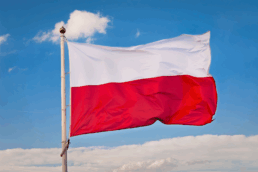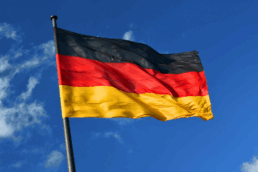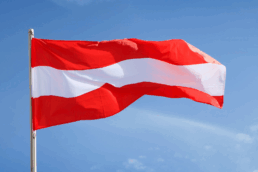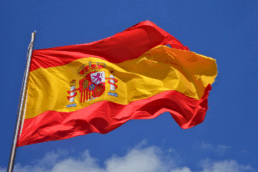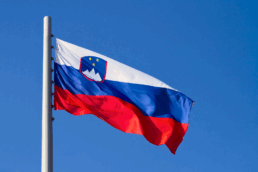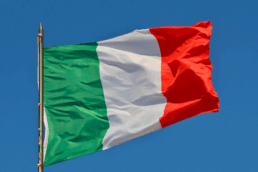Authorised representative of the manufacturer - who is he and who must appoint him?
EU rules impose an increasing number of obligations on businesses in relation to extended producer responsibility. One of these is the need to appoint an authorised representative in individual Community markets. As the Interzero Group, we offer this service to all companies operating within the EU. However, before get to know our offer, check what you need to know about the manufacturer's authorised or authorised representative.
Who is an authorised representative and what is their role?
An authorised representative is a natural or legal person established on the territory of an EU Member State who is a representative of a foreign manufacturer (manufacturer, introducer) in the Member State concerned. Authorised representative shall act under the written authority of granted to it by the manufacturer and fulfils the obligations relating to the placing of goods on the market in the Member State concerned (ensures that products comply with EU requirements, provides information and documentation on product compliance on request of authorities, cooperates with supervisory authorities on conformity assessment, inspection and enforcement, ...). These obligations may arise, for example, from local extended producer responsibility legislation or from legislation issued in implementation of the SUP Directive and the PPWR Regulation.
Example 1: Company X is based solely in Poland. It has recently started selling its products to customers in the Czech Republic, Slovakia and Hungary - it is therefore perceived as a foreign manufacturer in these markets and is entitled to appoint an authorised representative, e.g. for extended producer responsibility.
Who is required to appoint an authorised representative?
Both EU legislation and national regulations in many Member States oblige certain manufacturers to appoint a local authorised representative. This usually applies to companies that are not established in the Member State concerned and sell their goods (mainly packaging, batteries, electrical equipment) to individual customers located in that country by means of distance communication. Failure to appoint an authorised representative when required may result in fines. An authorised representative can be a natural or legal person established in the EU.
Example 1: Electronics retailer Company A is based in Poland, but also sells its products to individual customers in Germany and Austria. For this purpose, it uses its own online shop and several sales platforms. Company A does not need an authorised representative in Poland - it is established in the country and can fulfil its obligations as an introducer on its own. However, it needs to establish an authorised representative for EPR in Germany and Austria - otherwise it will not be able to legally sell its goods to foreign customers.
Example 2: Polish Company B manufactures small domestic appliances in its own factory, which it then sells to electronics wholesalers in Spain, Portugal and Greece. Company B only operates in the B2B sector, so it does not need to appoint an authorised representative in any of these markets. Importantly, at the same time, it has the right to appoint an authorised representative in each country, which it can exercise at any time.
Example 3: Chinese company Z sells packaged products via online platforms Temu and AliExpress. Its customers are mainly individuals residing in EU countries. Company Z will therefore need to appoint an authorised representative for EPR and PPWR in all Member States where its customers are located and where regulations are already in place.
Check your packaging licensing obligations in EU countries
Why was the need to appoint an authorised representative introduced?
The aim was primarily ensuring compliance with national and EU law. In this way each EU Member State has gained the ability to enforce obligations on traders placing goods on its market. Foreign traders can no longer evade their environmental obligations without any consequences or hide behind ignorance of local law - if they want to sell directly to consumers, they must appoint (usually for a fee) a representative to take care of cyclical reporting, payment of environmental fees, management of waste from the goods introduced, etc.
The need to appoint an authorised representative is also beneficial in terms of:
- Environmental - the foreign manufacturer must take extended responsibility for the products introduced and bring them into line with local regulations (e.g. SUP, PPWR); this reduces the amount of waste generated and ensure the proper management of waste already generated,
- competitive - all traders offering their goods to customers must comply with identical legal obligations and bear the resulting costs. The risk of placing goods on the market at an undervalued price due, for example, to their failure to comply with restrictive European regulations and the manufacturer's failure to pay all the required environmental fees disappears,
- consumer - the consumer (individual consumer) is assured that all the services offered to him/her the products comply with local regulationsand their manufacturer (importer, intra-Community supplier) will take care of the subsequent management of the resulting waste.
Authorised or authorised representative? What is the difference?
None. The concept of an 'authorised representative' is more frequently encountered in EU legislation and the institution of an 'authorised representative' in Polish legislative acts (however, this is not an absolute rule). In principle, The two institutions are the same and differ only in name.
It doesn't matter whether your company has to appoint an authorized or authorised representative - in any case it is a local representative who will fulfil your specific legal obligations in relation to various goodswhich you market in the Member State concerned.
Authorised manufacturer's representative for PPWR
PPWR Regulation obliges certain companies to appoint an authorised producer representative in each Member State in which they are not established and into which they introduce packaging or packaged products. This obligation covers manufacturers, importers or distributors established in a Member State or in a third country and making available for the first time on the territory of another Member State, directly to end users:
- packaging transport packaging, service packaging or packaging for primary production (disposable or reusable),
- packaged products other than those mentioned above.
Other manufacturers have the right to appoint an authorised representative in the EU markets into which they place their packaging and packaged products. In this way these generators can delegate their time-consuming and knowledge-intensive responsibilities to a professional local entity.
The PPWR also establishes the minimum scope of the power of attorney that the manufacturer shall give to its authorised representative. This should include
- retention of the EU declaration of conformity and technical documentation for a period of 5 years after introduction for single-use packaging and 10 years after introduction for reusable packaging,
- cooperation with national authorities in cases where packaging is found not to comply with local regulations issued in implementation of the PPWR,
- providing the national authorities with all the information and technical documentation necessary to demonstrate the conformity of the packaging,
- making documents available, at the request of the authority, within 10 days of receipt of the request,
- termination of the authorisation if the generator acts in a manner contrary to its obligations under the PPWR.
The parties may also broaden the scope of the duties covered by the power of attorney, but not without limitation. Regulation Indeed, the PPWR prohibits transferring to an authorised representative the obligation to prepare technical documentation and to provide guarantees that the packaging and packaged products introduced have been designed in accordance with the requirements imposed by the law of the Member State concerned.
Authorised representative of a manufacturer for extended producer responsibility (EPR) in the European Union
The RPP Regulation is only part of the EU extended producer responsibility legislation. By Directive 2018/851 of the European Parliament and of the Council of 30 May 2018 amending Directive 2008/98/EC on waste, the general legal framework for the operation of ROP schemes has been set. More Member States have now implemented or are in the process of implementing extended producer responsibility schemes, which also include the institution of an authorised (authorised) representative.
This directive grants all manufacturers placing packaging and products covered by the EPR legislation on the market in a Member State the right to voluntarily appoint an authorised representative for EPR.
You can read more about the institution of the local representative in the article: Authorised representative of the manufacturer - a new obligation for e-commerce businesses in the EU
What about the mandatory appointment of a local representative? The obligation (or lack thereof) depends on the regulations in force in each Member State. For example, in Austria, all traders selling packaging, packaged products, electrical and electronic equipment or batteries and accumulators by means of distance communication to the general public are obliged to have an authorised representative. By contrast, an example of much stricter EPR regulation is Spain, where not only online sellers, but all foreign manufacturers must appoint an authorised representative.

